West Haywood Street: 41 deeply-affordable apartments breaking ground in WECAN
ASHEVILLE - Standing on the slight rise, overlooking the interstate toward the mountains beyond, a question aimed in her direction knocked Jeanette King out of a thoughtful reverie.
"I'm sorry," she said with a laugh. "I'm just visualizing the view that our friends are going to wake up to every morning."
King and fellow Haywood Street Community Development board member, Carrie Pettler, were planted at the edge of an empty lot — a vaguely rectangular parcel of grass and scrubby brush, the slope culminating in a chain-link fence, home to a massive rusting Ingles billboard that greets motorists driving west into downtown Asheville.
It's the site of the group's first deeply-affordable housing project: 41 units, the majority targeting people earning 30-50% of the area median income, more than a decade in the making. Haywood Street Community Development is an affordable housing nonprofit created by nearby Haywood Street Congregation.
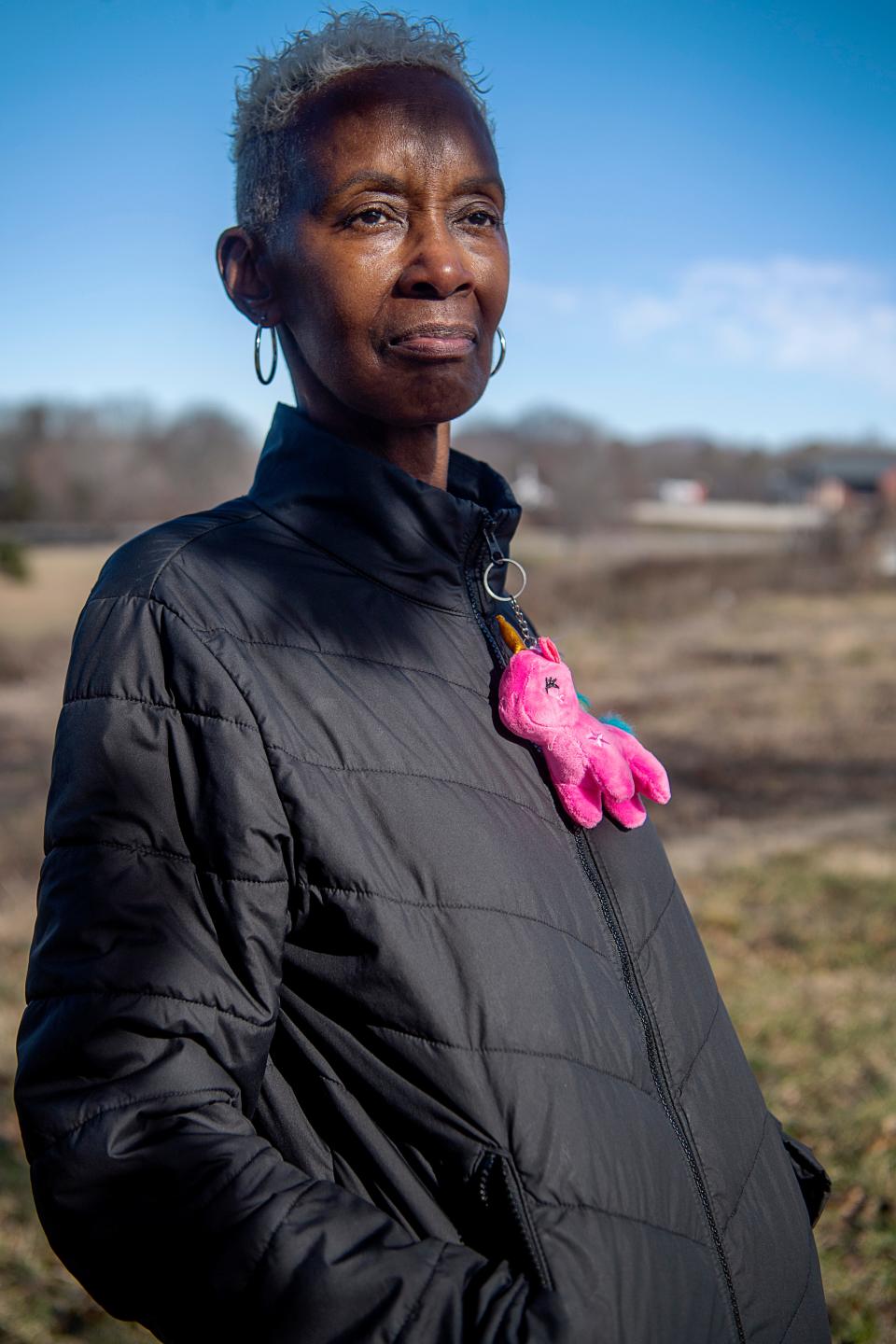
On a sunny day in February, less than a week out from the Feb. 21 groundbreaking, King and Pettler sketched the outline of the new building across the vista of mountain and sky: three stories of one-, two- and three-bedroom apartments, splitting to four stories on the north-facing side, small mountain-view decks and community spaces.
"It's mesmerizing," King said of the vision. "You’d be amazed at the feelings that go through a person’s chest .... when they have a safe roof over their head after the struggles and turmoil they’ve had to deal with."
More: Haywood St. apartments take next steps, model a future for Asheville affordable housing
'Yes in my backyard'
The parcel, at 339 West Haywood St., on the north end of the West End Clingman Avenue neighborhood, also known as Chicken Hill, is positioned on the cusp of downtown.
Pettler, the board's representative from WECAN, lives within view of the project, separated from the 1.3-acre parcel only by a spur of N.C. Department of Transportation land. Across the street is the Asheville Rides Transit garage and the WECAN community garden.
Below and beyond the site is the confluence of Interstate-26, I-240 and Patton Avenue as it enters downtown, an area that's bracing for significant change with the incoming $1.3 billion I-26 Connector project.
Through the work of Haywood Street founding pastor Brian Combs and others on staff, who held regular meetings at the site and prioritized engaging the surrounding neighborhood, Pettler said most residents of WECAN were excited to stand behind the West Haywood Street development.
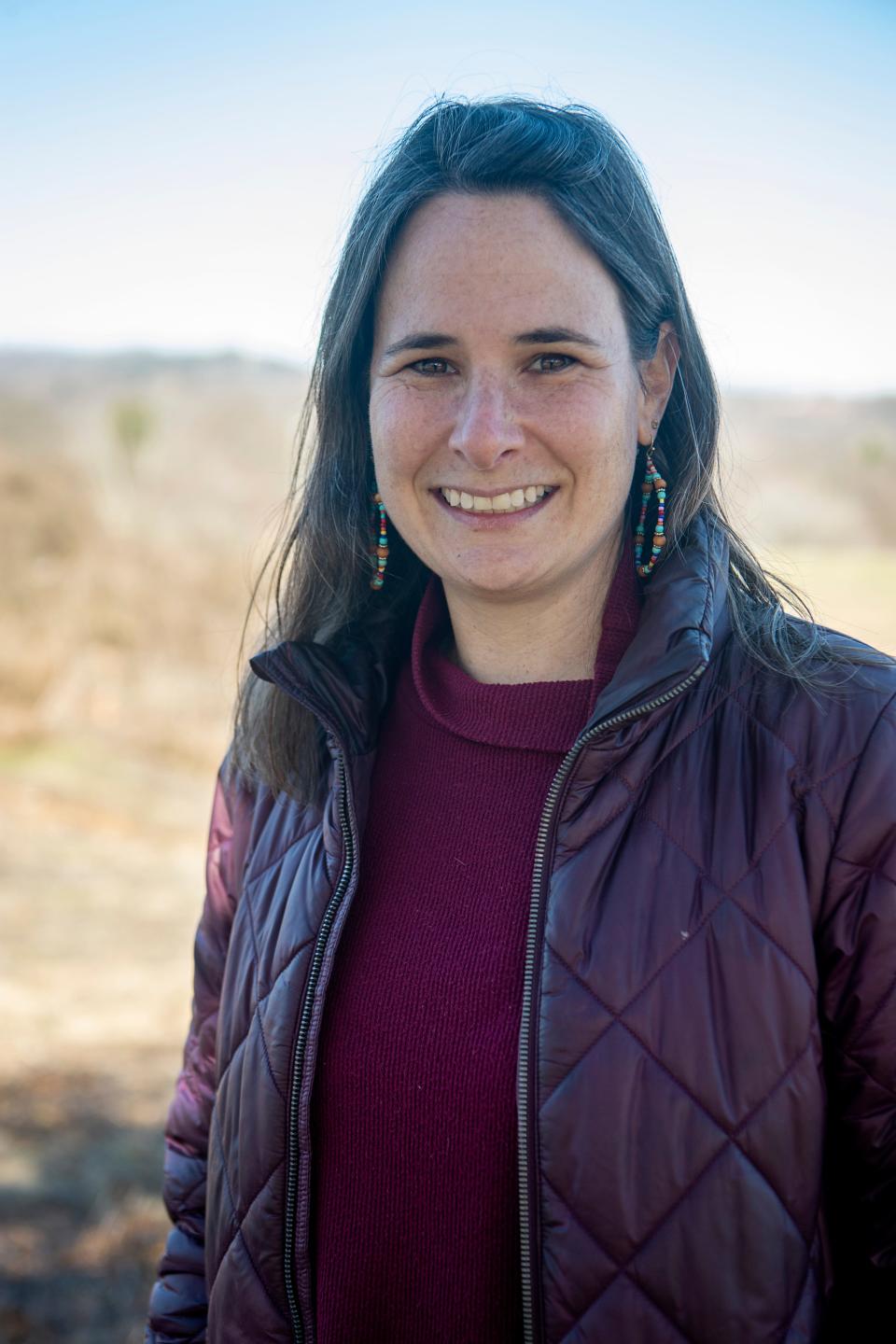
She credited an "incredible group of neighbors" who believe in affordable housing, who understand the value of urban neighborhoods, and who want the people who work downtown to be able to afford live there.
"I am just super proud of this neighborhood for being more YIMBYs than NIMBYs," Pettler said. She bought her property in 2012, having first come to Asheville in 2005, and has since watched the neighborhood change around her — with growing gentrification, rising housing costs and peaking rents that have landed Asheville among the highest in the state.
“I hope this sets a precedent for what we need in the country, in the community,” she said, specifically affordability in perpetuity, one of the central components of the West Haywood Street apartments.
More: Asheville and Buncombe County living wage increases 9% amid soaring housing costs
Project details
The two original project parcels were purchased for the development in March 2022 for $1.3 million. The final parcel was closed on in November 2023 for $505,000.
The acquisition of the third parcel changed the design and unit-count from a four-story building on a podium, with parking below, to a three/four-story split, with surface parking elsewhere on the lot, what Haywood Street Congregation Executive Director Laura Kirby said was ultimately a more visually-appealing design for the neighborhood and reduced overall construction costs.
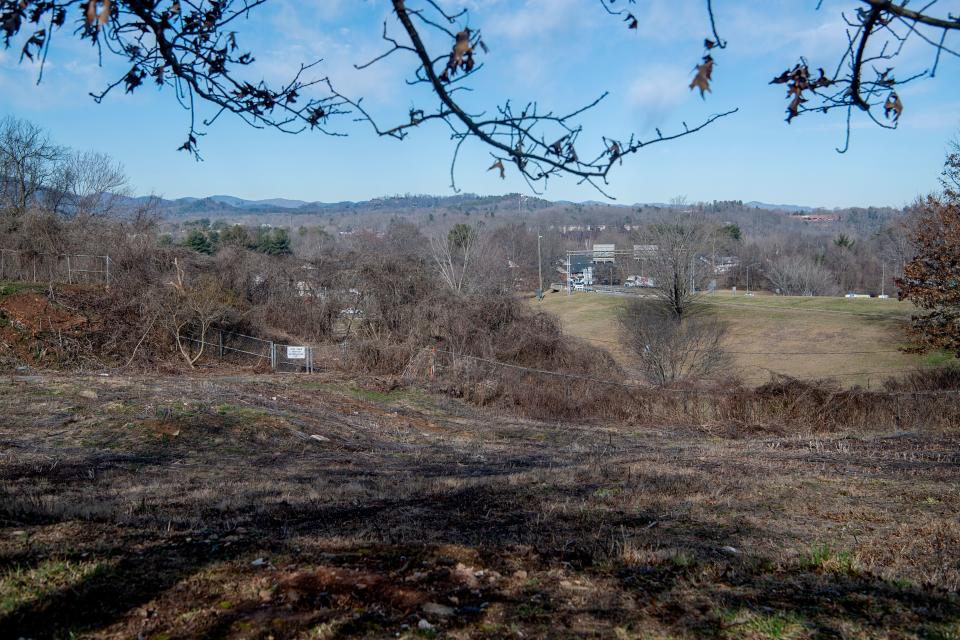
Of the 41 units, 37 (a mix of one- and two-bedrooms) will be reserved for housing voucher holders, which targets people earning 30-50% AMI. The remaining four three-bedroom units, would be rented at 80% AMI and below.
In Asheville, according to the city's 2023 appendix, 30% AMI for one-person is $17,850, and $20,400 for two. At 50% AMI, annual income is $29,750 for one-person and $34,000 for two.
The fair market rate for a one-bedroom apartment in the city is $1,428, according to reporting from the Citizen Times.
Affordable rental rates are established by the U.S. Department of Housing and Urban Development (HUD) and vary according to income level and number of bedrooms. When an individual receives a HUD voucher, the federal government pays a portion of the rent.
For example, a one-bedroom unit will rent for $1,557/month to an individual with a HUD voucher. However, the tenant will never pay more than 30% of their income for rent.
If someone makes $29,750, 50% AMI in Asheville, that means they would pay a maximum of $743 a month.
The Haywood Street apartments will be funded through public-private partnerships, with a total budget of $12.25 million.
The project clinched Asheville City Council approval in February 2022. Council also approved funding support for the project in the form of a $1.3 million grant from the city's affordable housing bond funds to purchase land, plus an additional $296,000 for due diligence costs, and a $904,000 loan from the Housing Trust Fund for construction.
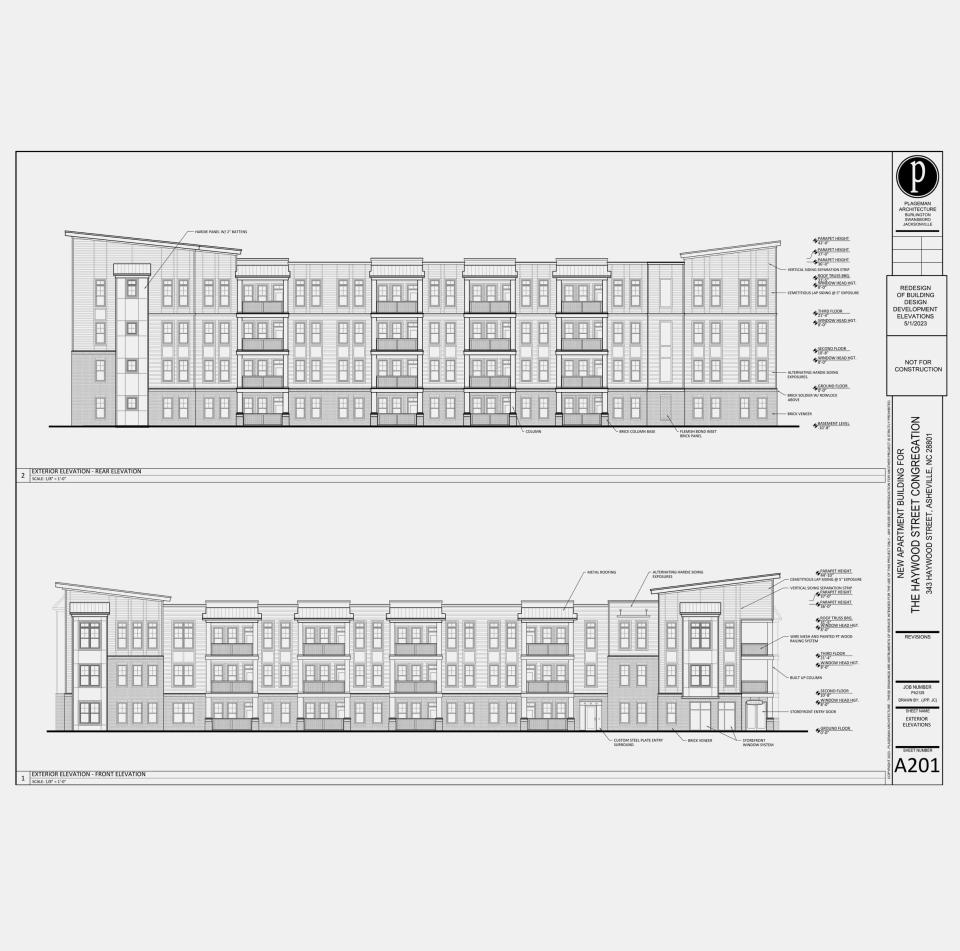
Buncombe County committed $749,000 and Dogwood Health Trust allocated $2 million. With $2.2 million in charitable donations through fundraising, which is still ongoing, and $4.8 million in conventional debt. Kirby said Self-Help Credit Union made a loan commitment to help complete the capital stack.
Once constructions begins, a 12-18 month build is anticipated.
'A new era'
King moved to Asheville in the '80s. Before coming to the city, she had experienced homelessness as a single parent.
Her first visit to Haywood Street was more than a decade ago. Now, she's immortalized in the fresco that decorates its sanctuary.
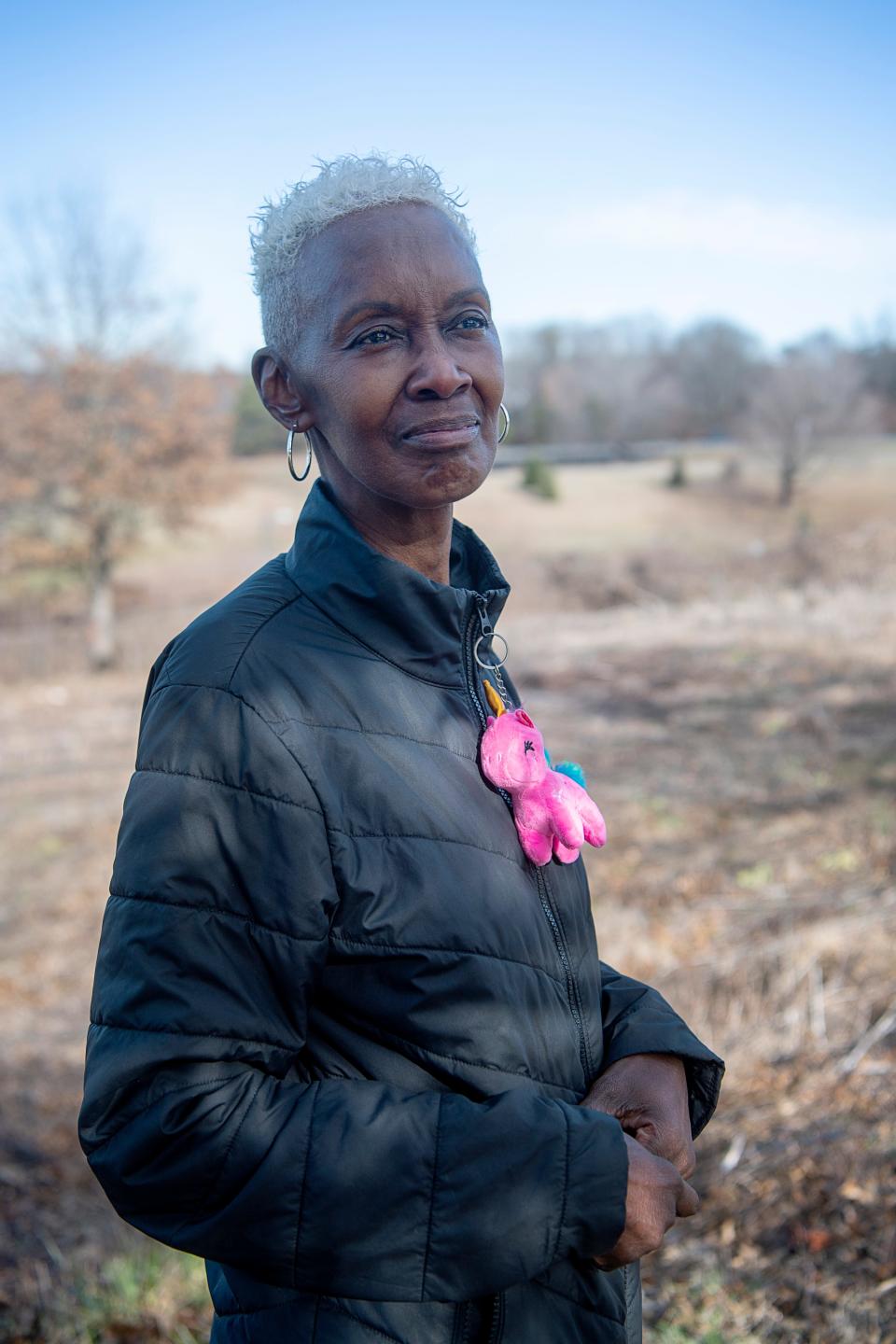
“I stopped in for a cup of coffee, ended up with lunch and with a love I hadn’t felt since grandma died,” she said. Since then, she's been involved on various boards and has been advocating for the housing effort since the beginning.
“People caring for people,” she said of the project. “This is the beginning of a new era."
Let's do it again
Shared by board members and Haywood Street staff was a desire to see the model replicated — to pursue further deeply-affordable developments, necessitated by an ever-deepening housing crisis.
“As soon as we put the shovel in the ground, we’re going to start thinking about the next one," Pettler said.
This was echoed by Walker Strickland, also on the HSCD board. She's been in Asheville for seven years, she said, and even in that time, she's watched prices go through the roof.
"I've watched friends move away because of it, watched graduates from UNCA not be able to find positions and housing, and so they're leaving, and I don't want to live in this ultra-rich, wealthy vacation town. I want to live among people who are supporting what we have to offer," she said.
"I would love to see as many affordable housing complexes as we can create, that is the dream, for sure."
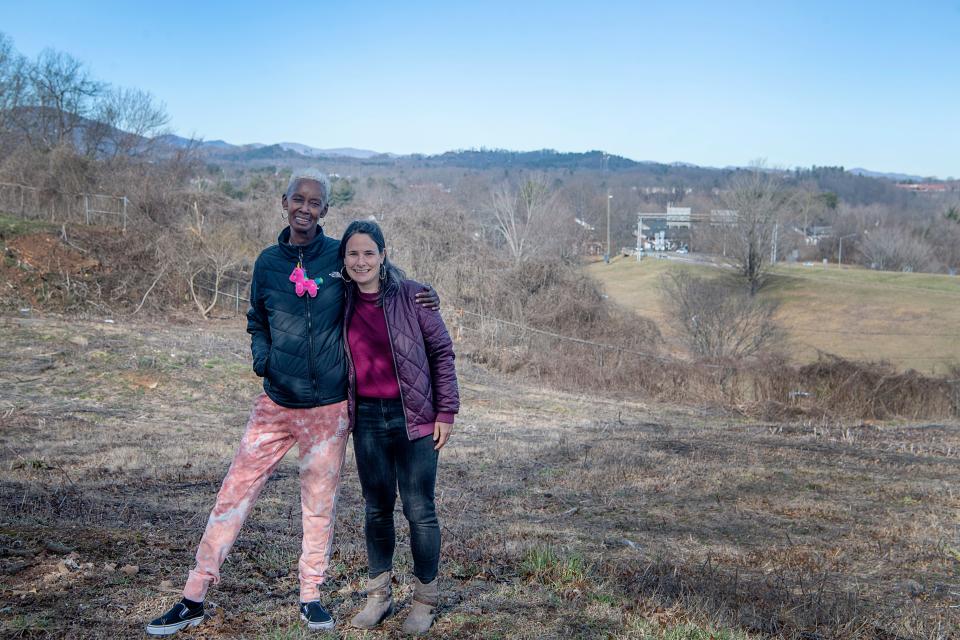
Pettler, who has been on the board now for two years and recently renewed her term, said she'd stay forever if she could.
“I’m in awe, every day, of the HSCD board and the HSC staff who commit their lives to this. The dedication and the commitment to people in our town, to other people in our town, is so beautiful. They changed me, in a way, to make me want to do more, to be more committed, to advocate more," she said.
Of the development, looking back toward the land, Pettler said, “We look forward to growing a community here. To having 41 more families and individuals."
King added, "for generations and generations."
If you go
What: Haywood Street Community Development groundbreaking of first deeply-affordable housing project.
When: Feb. 21, 12:45 p.m.
Where: 339 West Haywood St.
More: I-26 Connector: Asheville calls for reduced speed limit on part of Patton Avenue
More: As I-26 Connector looms, Asheville considers future of downtown's 'western gateway'
Sarah Honosky is the city government reporter for the Asheville Citizen Times, part of the USA TODAY Network. News Tips? Email shonosky@citizentimes.com or message on Twitter at @slhonosky. Please support local, daily journalism with a subscription to the Citizen Times.
This article originally appeared on Asheville Citizen Times: Asheville Haywood St. apartments to offer 41 deeply-affordable units

